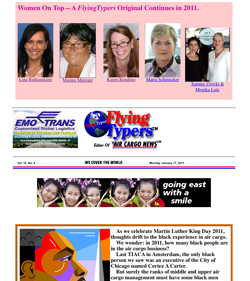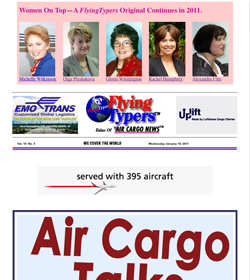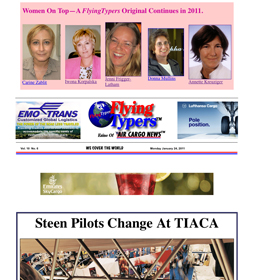 |
 |
|
| |
||
| Vol. 10 No. 7 WE COVER THE WORLD Tuesday January 25, 2011 |
Return Of The
Red Baron
|
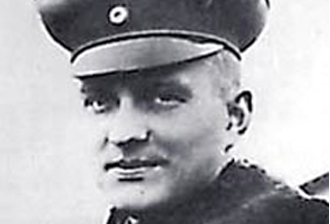 |
 |
2011
marks 93 years since Manfred von Richthofen, the most famous fighter
pilot of World War I, shot down 80 aircraft and died after being shot
down himself, at age 25 over the skies of France. While the new Lufthansa
Cargo Area Manager for the Americas, Achim Martinka, bears a striking
resemblance to “The Red Baron,” he is most certainly out
to make his mark not by downing anything, but rather by lifting air
commerce into the sky.
“Martinka’s
American Zeitgeist” gets off to a flying start as he speaks to
FlyingTypers in an exclusive interview:
 We
think 2011 will be a year full of important decisions.
We
think 2011 will be a year full of important decisions.
At stake in the first six months is the
ruling awaited from the Federal Administrative Court in Leipzig regarding
night-flight restrictions in Frankfurt.
We all hope for a decision against a blanket
ban on night flights in Frankfurt. Dependent on the future night flight
regulations in Frankfurt, is a major investment into the infrastructure
at our hub.
Our goal is to build a new and modern
logistic center – if we get the the operating hours at the airport.
In 2011 we will also make decisions regarding
a capacity growth.
We want to grow with the market and offer
our customers a dense and attractive network and the capacity they need.
Therefore we will have to invest in our capacity.
One highlight for us in the Americas is
the new destination Manaus in Brazil, which will be served from January
21.
On balance, 2010 was far above our expectations.
After the terrible loss of 171 million euros in 2009 we are about to
achieve a record profit in 2010.
I am glad that we were able to reactivate
all parked freighters this year.
New destinations and new products were
introduced and certainly a key to this success. A great example is the
Opticooler, the most modern cooling container in the industry.
Looking ahead, volatility of our industry
will stay. Therefore, high flexibility remains a key success factor.
Tightened security regulations also provide
challenges. However, Lufthansa Cargo is recognized as the Industry Leader
in this field and I am convinced that we master these challenges.
One further issue worth mentioning is
the emission trading scheme. Starting in 2012, European air transport
will be included in emissions trading. It is already now becoming clear
that the bureaucratic approach of the European Union will lead to higher
costs for us as an airline.
In terms of our business by segment, 2010
saw all products performing extremely well.
Our express product td.flash has seen
high growth rates as well as our specialized services, like the transport
of temperature sensitive shipments.
In this segment we expect the high demand
from the pharmaceutical companies to continue in 2011. Thus we have
just signed a MoU in Hyderabad to establish a pharma hub at this South
Indian airport.
When we look at the strength in the different
regions of the world, Asia Pacific remains the biggest market. Growth
rates were very strong out of Asia, but even higher in the Americas.
 By
November Lufthansa Cargo had increased its tonnage by almost 20 percent
compared to the previous year.
By
November Lufthansa Cargo had increased its tonnage by almost 20 percent
compared to the previous year.
Geoffrey/Flossie
Up
Front & Personal An Air Cargo News FlyingTypers First |
|
|
If
You Missed Any Of The Previous 3 Issues Of FlyingTypers |
|||||
|
|||||
FT011711 |
FT012411 |
||||
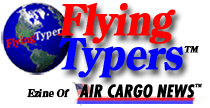
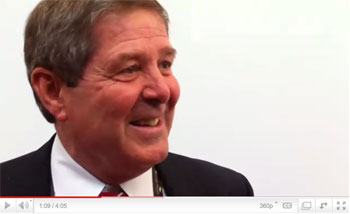
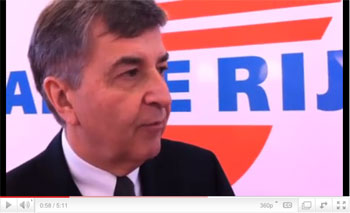

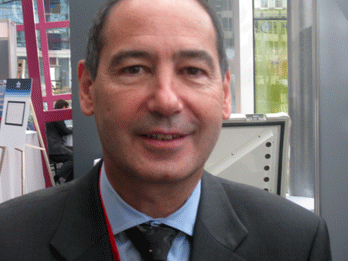 Des
Vertannes
Des
Vertannes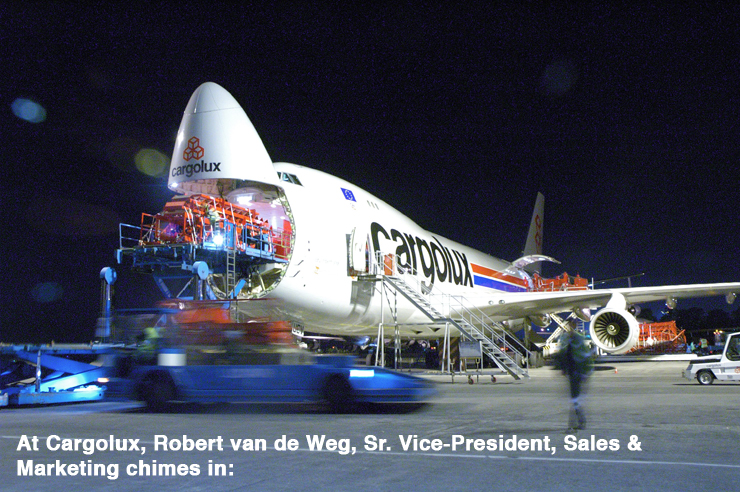
 Robert
Van de Weg
Robert
Van de Weg
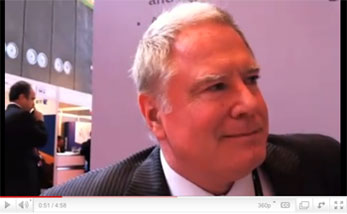
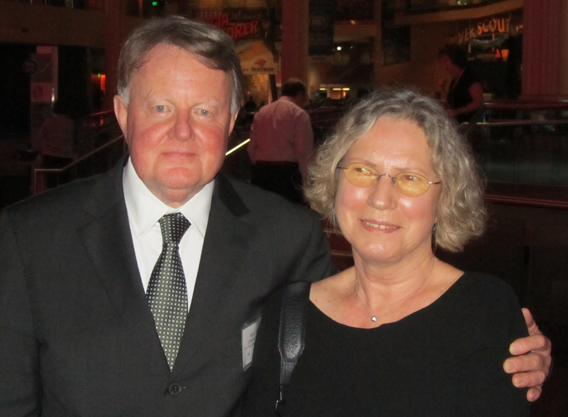 Eine
Kleine Klausmusik
Eine
Kleine Klausmusik 